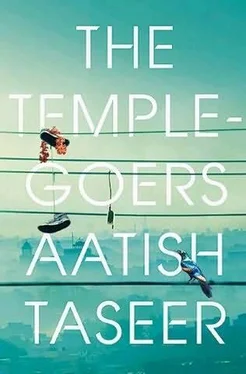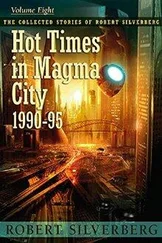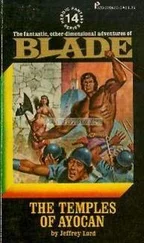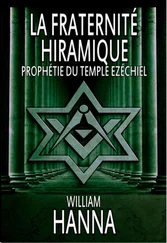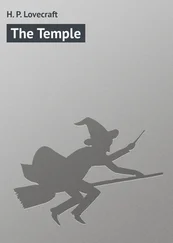Dinner – shami kebabs, baby aubergine, cumin potatoes, lentils, raita, okra and chicken curry – was served very soon after. On the way to the table, Shabby pushed her way up to Chamunda. ‘Where… where were you?’ she said, prodding her. ‘Not at a prayer service for yourself, I hope.’ At this, her whole body shook with laughter. ‘The divine Chamunda,’ she sniggered, as though wishing for the writer, still finding his place on the table, to hear.
‘Shabby, I don’t know if TVDelhi considers this news, but there have been bombs in my state -’
‘One bomb!’ Shabby interjected. ‘And that also a very small one.’
‘There has been an encounter, a man from Sectorpur was killed, there are rumours of a backlash.’
‘What about the two young boys who were killed?’ Shabby demanded. ‘What about that backlash?’
‘They were terrorists, Shabby.’
‘Terrorists, my foot. Show me the evidence. Where’s the evidence? Just two poor Muslim boys framed by your police because they’re too incompetent to catch the real guys.’
Chamunda gave my mother a look as if to say, ‘Put this woman far away from me or I can’t be held responsible for the consequences.’ And, as my mother was in the process of seating everyone, it was easy to separate them. The writer went between my mother and Chamunda; the Sikh gentleman in the yellow kurta between the writer’s wife and Sanyogita. With three men and four women, it was a difficult placement, and though Chamunda and Shabby could have been put further apart, any further and they would have been face to face. And so my mother, counting on me and the curvature of the dining table to ease the tension, put them on either side of me.
Shabby, perhaps sensing why the placement had been made the way it had, let drop her conversation with Chamunda and picked it up in a different tone with the writer.
‘What do you think, Mr Vijaipal, of this dastardly situation we’re in, here, in India?’
The writer, putting away small quantities of yellow dal with a teaspoon, wiped his lips. For a few moments, his mouth seemed softly to run over the words he was about to give Shabby. Then as if finding them too complicated, he began more simply. ‘I think it’s a difficult situation, a unique situation in fact. Unique, yes, unique. I’ll tell you why. You don’t have a Muslim-majority population, like Pakistan and the Arab countries, but neither is your Muslim minority an immigrant population, like with the European countries and North America. This makes for a special tension…’ He broke off, and as if articulating this tension directly was proving too hard, came at it from another angle. ‘I was in England when they had their bombings. I felt then that the great shock was not the bombings themselves, but the headlines the following day.’ Making the shape of a lengthening rectangle with his hands to indicate a headline, he said, ‘They were all British!’ The description had its impact and the table was silent. The writer, now only warming up, said, ‘The shock of being attacked by one’s own people, you know, the shock of being attacked by one’s own. Very hard, you know, very hard.
‘The English to some extent could distance themselves, knowing that the people who attacked them, though legally British citizens, were immigrants. That made it easier to bear. They had come to Britain no more than fifty years before. To undo that history would be no great thing. But in India we’re talking about that same feeling, the feeling of being attacked by one’s own, and the tension that arises from that, except in India we’re talking about a non-immigrant population that constitutes nearly 15 per cent of the whole population. And of course a thousand years of history, bad history, most of it obscured or not dealt with. That cannot be so easily undone. Any serious eruption along those lines would tear the country apart.’
This last remark concerning the tearing apart of the country was understood on the table in very different ways. Somewhat elated, Shabby said, ‘I know, I know. I keep telling these saffron-types that this was never a country; the British made it a country. It can never be ruled as one country. It must be ruled in small, manageable portions.’
‘You want it to be partitioned again,’ Chamunda flared, ‘why don’t you come out and say it? Do you see, Mr Vijaipal, what our so-called “intellectuals” want?’
The writer, seeming to filter many ideas at once, muttered, ‘Yes, yes.’
‘Yes, yes, what?’ Shabby badgered him.
The writer answered her by ignoring her. Raising his old lion’s face up to Chamunda’s, a comic gleam entering his eyes, he said, ‘I think they would like to make India destroyable. Isn’t that right, Chamunda? That’s what they’re trying to do, yes?’
Chamunda clapped her hands like a little girl. She took the writer’s huge face in her soft brown hands, with their reddish-orange nail polish matching, I could see now, the diamonds on her sari, and kissed it. ‘Now this is a writer!’ she exclaimed. ‘Not a bit like our treacherous lot who feel that to be an intellectual means betraying your country.’
The writer purred contentedly. My mother laughed out loud, expressing the special delight one feels at characteristic behaviour from an old friend. I caught Sanyogita’s eye and saw that she was embarrassed. In that instant, I wished for her not to be embarrassed and for her to be a little bit more like her aunt, not always so correct.
At the table, Shabby was far from defeated. ‘What country, what country?’ she was saying, now readily taking up Chamunda’s challenge. ‘That’s what I’m asking. You tell us, Mr Vijaipal, what country? Was India ever a country until the British came along?’
The writer, who after his mischief-making had retired to the affections of Chamunda, now became interested in what Shabby was saying. ‘I’ve always been intrigued,’ he said, ‘by how this bit of babble left behind by the British, and taken up by the Leftist historians, has survived in India till today. When people say India was not a country until the British arrived, what exactly do they mean? They could not really be saying that India wasn’t a nation-state. That would be absurd. The idea of the nation-state, even in Europe, is a relatively recent idea, a nineteenth-century idea. So what they must mean, then, is that there was not even an idea of India, the way there was of Europe, or of ancient Greece; that there was never in the minds of its people the notion of belonging to a land called India.’
‘There wasn’t!’ Shabby asserted. ‘You ask the average Indian, not a princess or a goddess like Chamunda Devi here, but the common man, and he would not think of himself as an Indian. He would think of himself as a Gujarati, a Punjabi, a Tamilian, an Assamese. He wouldn’t have the faintest idea of India, “the land”.’
The writer seemed caught between the interruption and Shabby’s raised voice, both of which he was unused to, and what he was going to say next. He lowered his head and muttered, ‘Not the temple-going Indian, not the temple-going Indian.’ Then raising his head and voice at once, he silenced Shabby. ‘Not the temple-going Indian,’ he said for the third time. ‘People like you perhaps, but not him. He knows this country backwards. He forever carries an idea of it in his head. For him, it possesses a sacred topography. He knows it through its holy places. He knows it from the mountains in the north where the rivers begin, and from where the rudraksh he wears around his neck come, to the special place from where the right stones for the lingas come. He knows the rivers when they widen and the great temples and temple cities, with their stone steps, that have been set along their banks. He knows the points where those rivers meet other rivers, and their confluence becomes part of the long nationwide pilgrimages he will make several times in his lifetime. In fact, it could be said that there is almost no other country, certainly not one so vast, where the countrymen are as acquainted with the distant reaches of the land through their pilgrimages as they are in India; perhaps no country where poor people travel more. They think nothing of jumping on a bus or train, for two or three days, to journey to Tirupathi in the south or Jagannath in the east. And in this way, the religion itself is like a form of patriotism.’
Читать дальше
